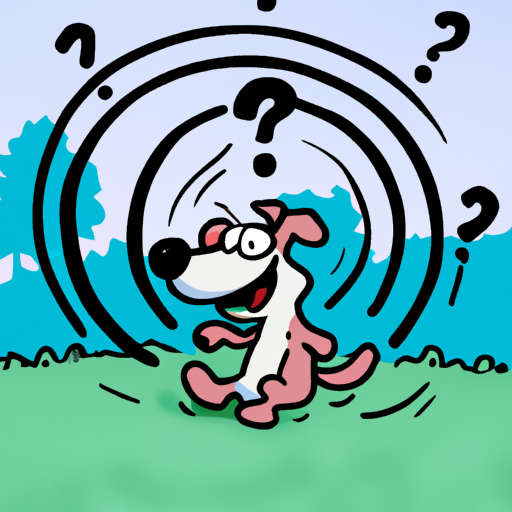As a caregiver, you are constantly seeking answers to the fascinating mysteries of the canine world. One such interesting question that you may have come across is this: why don’t dogs get dizzy from spinning? This intriguing phenomenon is a testament to the unique physiological adaptations of dogs. Let’s unravel the mystery together.
H2: Understanding Dizziness in Humans
To comprehend why dogs don’t get dizzy when spinning, it’s crucial to first understand why humans do. In humans, dizziness is often caused by a disturbance in the inner ear, specifically within a tiny organ called the vestibular apparatus.
- The Vestibular Apparatus: This is the organ responsible for maintaining our balance and orientation. It is filled with fluid and has tiny hair cells that move with the fluid motion.
- Motion and Dizziness: When we spin around, the fluid in the vestibular apparatus also moves. Once we stop spinning, the fluid continues moving momentarily, causing the hair cells to send mixed signals to the brain, leading to a sensation of dizziness.
The table below summarizes the process of dizziness in humans:
| Steps | Description |
|---|---|
| 1 | Spinning creates fluid motion in the vestibular apparatus |
| 2 | On stopping, the fluid keeps moving |
| 3 | The continued fluid motion sends mixed signals to the brain |
| 4 | The brain interprets these signals as dizziness |
H2: The Canine Vestibular System
Unlike humans, dogs don’t usually get dizzy after spinning. This is primarily due to the differences in the canine vestibular system and how it interacts with the rest of the dog’s body.
- Rapid Recalibration: Dogs have a faster recalibration of the vestibular system, allowing them to quickly regain balance after spinning.
- Adaptation to Hunting: Dogs, as descendants of wolves, are adapted to rapid chases and abrupt turns when hunting. Their vestibular system is designed to cope with these sudden movements without causing disorientation or dizziness.
H2: Physical Adaptations in Dogs
Dogs have other physical adaptations that help prevent dizziness. These include:
- Eye-Head Coordination: Dogs have an amazing ability to stabilize their gaze while moving. This phenomenon, called the vestibulo-ocular reflex, helps them maintain focus on a target even while their head is moving.
- Tail Function: A dog’s tail also plays a role in balance. Dogs use their tails to counterbalance their bodies when making sharp turns, reducing the risk of disorientation.
H2: Behavioral Aspects
Apart from physiological reasons, some behavioral aspects also explain why dogs don’t get dizzy from spinning.
- Play Behavior: Dogs often engage in spinning as a form of play. They are capable of stopping before reaching a point of disorientation.
- Training: Some dogs are trained to perform spins, and over time, they develop a higher tolerance to the spinning motion.
H2: Health Implications
While dogs are generally resistant to dizziness from spinning, it’s essential to note that excessive or forced spinning can cause health issues, such as nausea and disorientation. If you notice any unusual behavior in your dog after spinning, it’s advisable to consult a vet.
FAQs
Q: Can dogs never get dizzy?
While dogs are less prone to dizziness than humans, they can still experience it under certain circumstances, such as ear infections affecting the vestibular apparatus.
Q: Should I discourage my dog from spinning?
Not necessarily. Spinning in moderation is a normal part of play for dogs. However, if your dog spins excessively or appears disoriented afterwards, it’s worth consulting a vet.
Q: Can I train my dog to spin without getting dizzy?
Dogs naturally have a higher tolerance for spinning. However, any training should be done gradually and carefully to avoid causing distress or health issues.
Q: My dog seems dizzy, but hasn’t been spinning. What could be the reason?
Dizziness in dogs can also be caused by health issues such as ear infections, head injuries, or certain diseases. If your dog appears dizzy or disoriented, it’s essential to seek veterinary advice promptly.
In conclusion, the mystery of why dogs don’t get dizzy from spinning unravels to reveal a fascinating interplay of physiological, physical, and behavioral adaptations. As a caregiver, understanding these aspects can give you a deeper insight into your dog’s world.



